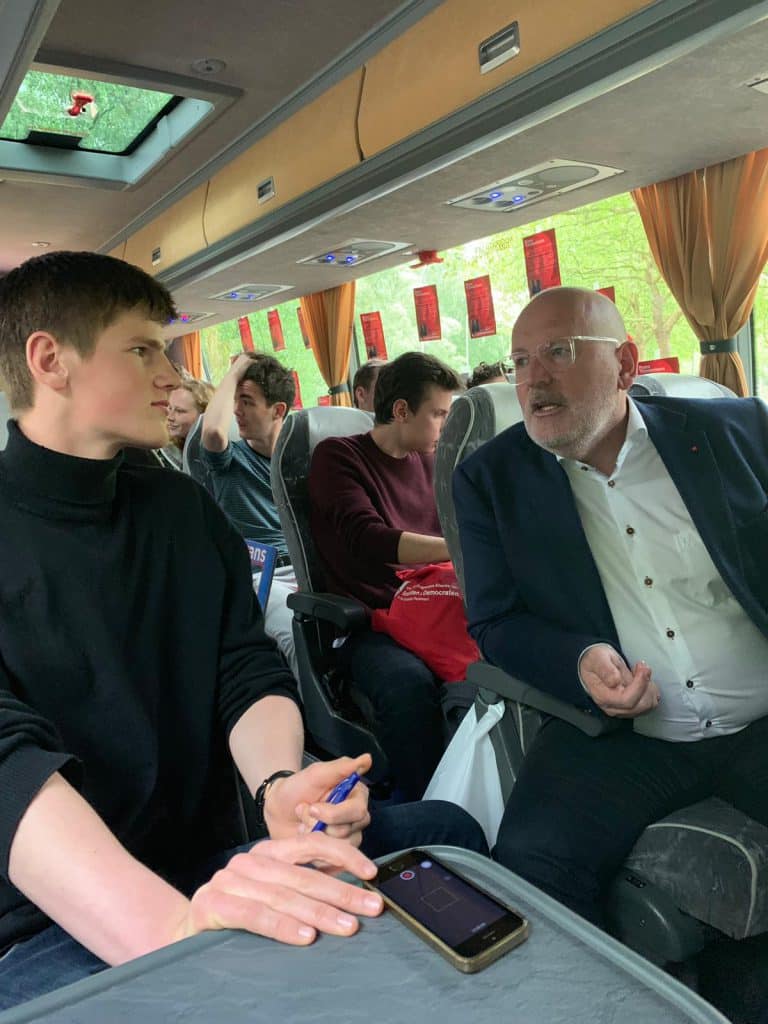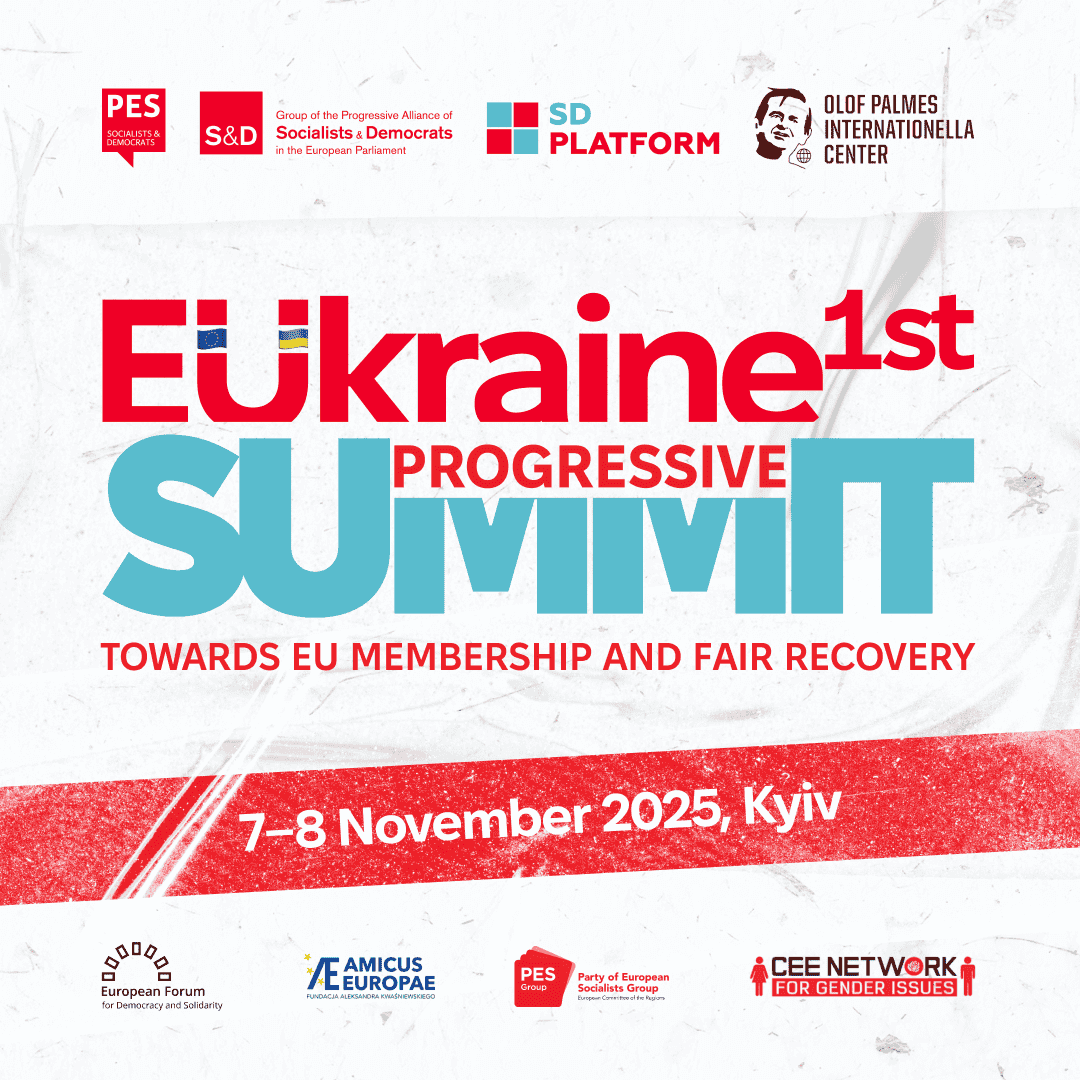Hello all, my name is Lou Boshart and I am in my fifth year of VWO. For the past two weeks, I have been working at the Foundation Max van der Stoel (FMS) as a snuff intern. After my final exams, I plan to study History in Utrecht, with the plan in the distant future to also do a master's degree in International Relations. My uncle, who works at the UN, advised me to do an internship at an NGO given my interest in international politics. This is how I ended up at FMS.
I had initially prepared myself for a fortnight of office work, something I was really looking forward to, by the way. On Monday, however, I was told that from Wednesday to Saturday I could join the 'Tour de Frans' to Brussels, Aachen, Bergen op Zoom, Antwerp, The Hague and Amsterdam to encourage Frans Timmermans ahead of the European elections on 23 May. I recently started my profile paper, in which I examine inequality of opportunity from a personal perspective. On the bus to Antwerp, I was able to interview Frans Timmermans about opportunity inequality in Europe. Surely, this was the highlight of the city trip for me! He told all kinds of things about the expansion of the Erasmus programme, the development of Africa and about how essential it is for migrant children to go to school and come into contact with the Dutch language at a much younger age. "I think we should think about at what age we let children start school. Especially in a diverse society where not everyone immediately acquires the language of the country at home, starting school at the age of four is too late. Children are often so far behind in not only their knowledge of a language but also their linguistic skills, their use of the language. That they can hardly catch up. We really need to do something about that" , said Frans Timmermans.
In the office, I looked into the political situations of Albania and Ukraine and wrote about them in the Newsflash and on the European Forum website. I also interviewed our own Balkans expert Danijel on the accession of the six Western Balkan states to the European Union. "The Balkans is not so much our backyard as it is our front yard. If you have weak states there where organised crime prevails, you can feel it in Europe. Because organised crime doesn't really know borders. They work very easily with other criminals within the European Union. When you integrate this area into the European Union, you have much more control. That is not necessarily through accession, accession is a final destination of a very long process. That process is more important than joining itself", Danijel said.
My internship supervisor Rozemarijn helped me a lot to get a good idea of the work within FMS. In addition, I was really pleasantly surprised that the whole team has lunch together every day. This made it much easier to get to know colleagues. In my case by listening nicely 🙂




